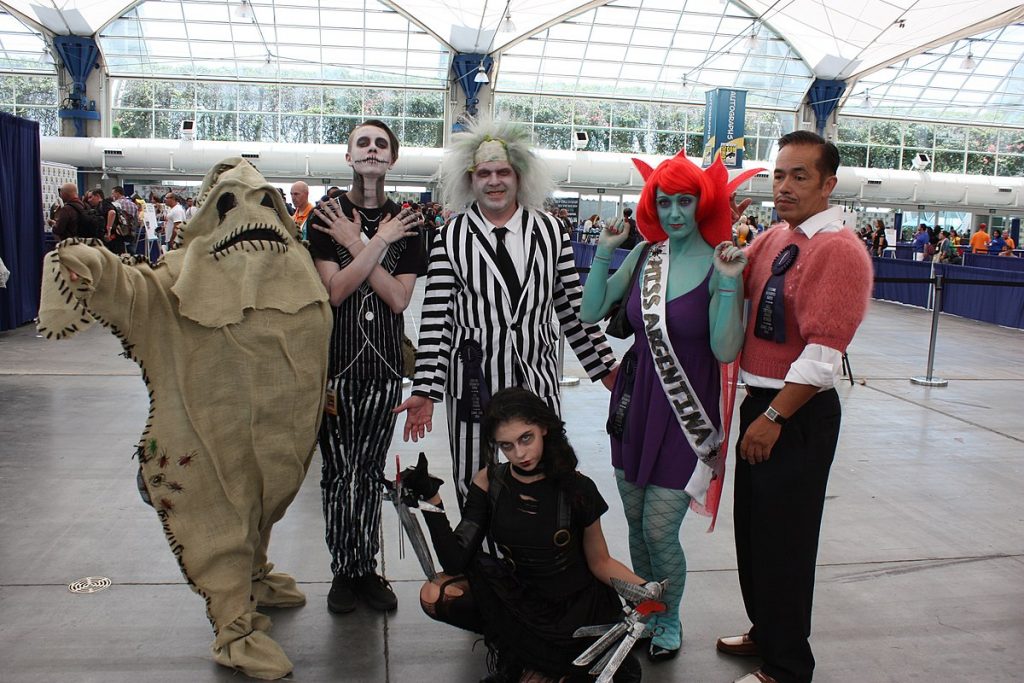
“SDCC 2014 - Tim Burton characters”, CC/BY 2.0, EWEN ROBERTS, Tim Burton characters are popular “cosplay” (character costume) choices for many people, especially those who grew up with Burton’s films. Even the Oogie Boogie Man (far left) may be based in racism; the name is drawn from an archaic, southern derogatory word for Black people.
Tim Burton; racism in film and media
To many, film and television are some of the most available forms of entertainment. The history of the artform began with soundless, black-and-white “motion pictures” dating back to 1908. Aside from Disney, Tim Burton is one of the few well-known directors of animated works, though his live-action films are very popular as well. However, underlying the genre and Burton’s works are generations of subtle and not-so-subtle racism.
Much of early live-action films and animation drew from minstrel shows (where white people performed as caricatures of Black people) for inspiration, using slapstick, violent humor, and even blackface. It was relatively common in early cartoons—such as Looney Tunes—for a character’s face to turn dark with bright red lips after being blown up. With such a history, it is unsurprising that racism would persevere within film and television for so long.
Burton’s dark, gothic aesthetic is one of the main selling points of his films, and is largely considered his signature. To maintain his aesthetic, Burton avoids casting people of color in his films. When approached about diversity within his movies, Burton stated that “things either call for things, or they don’t.”
While Burton –– as a white man growing up in the late ‘60s and ‘70s –– might have had the excuse of ignorance, many years have passed where he had the opportunity to grow. He is essentially saying that white people are default,that people of color should not exist within media unless a story is being told specifically about them, “I remember back when I was a child watching ‘The Brady Bunch’ and they started to get all politically correct, like, OK, let’s have an Asian child and a black — I used to get more offended by that. . .”
Tim Burton has brought entertainment to countless people as a director. However, his refusal to acknowledge the problem regarding the inexistence of people of color within his films is inexcusable. This fall season, leave the Burton movie alone and load up something new.